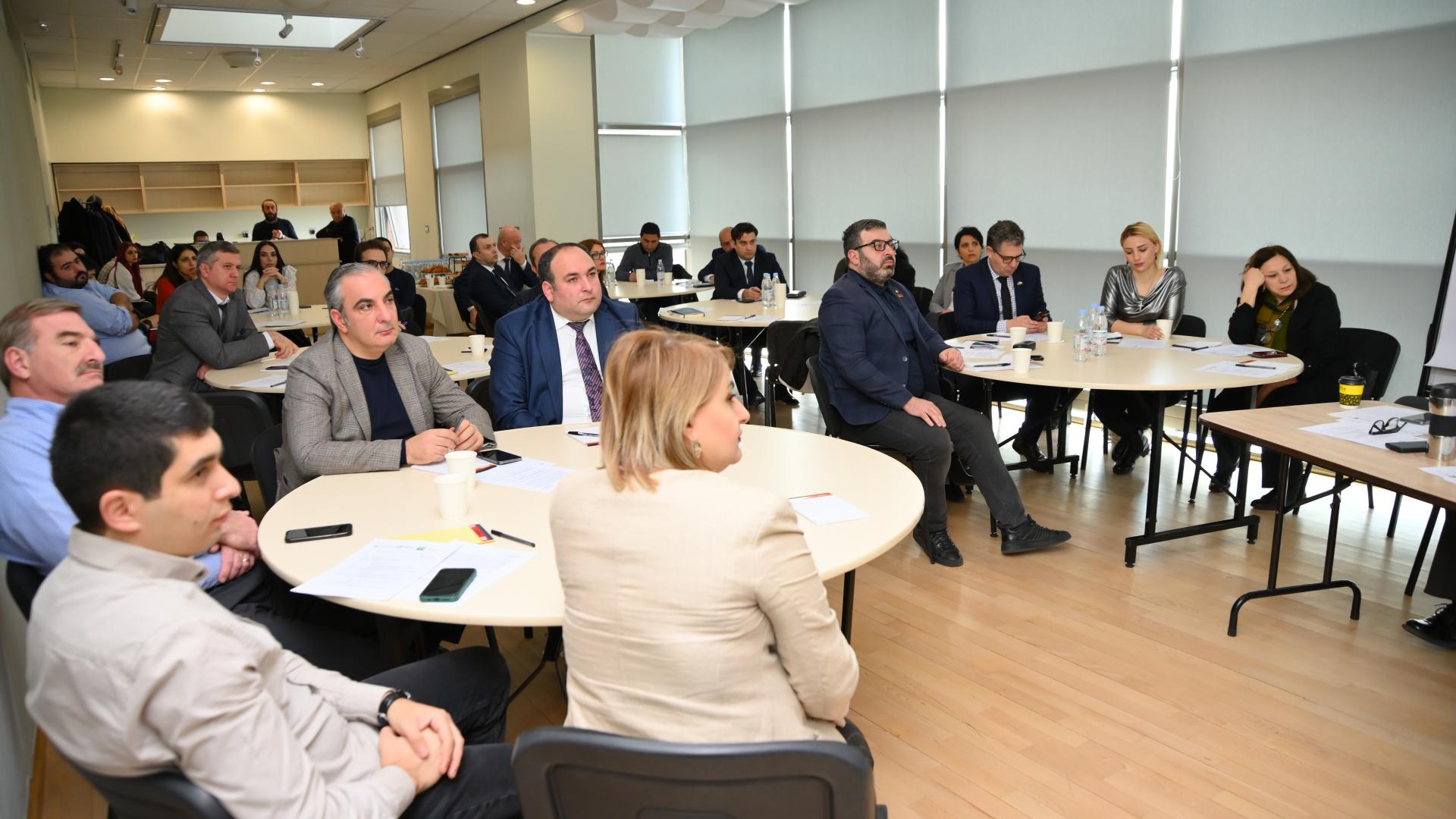Armenia’s energy security policy discussion commences

Yerevan, Armenia —On February 23, the Westminster Foundation for Democracy (WFD) and the American University of Armenia (AUA) Energy Transitions for Climate Solutions Initiative (Energy4Climate) held a roundtable discussion on Armenia's energy security. Members and staff of the Republic of Armenia (RA) National Assembly, representatives from the RA government, relevant ministries, and public authorities attended the event.
The discussion aimed at creating a dialogue to examine the potential of enhancing Armenia’s energy security through national policies and strategies. The attendees discussed the role of renewable energy, decarbonization strategies, and critical investments in efficiency and storage to enhance Armenia’s energy security. Moreover, the discussions were anchored to the existing energy strategy of the country with a vision for further development and growth as it evolves in its succeeding iterations.
The event began with welcoming remarks from WFD Armenia Program Officer Grigor Janikyan, followed by brief presentations from economist and energy expert Astghine Pasoyan and AUA Acopian Center for the Environment Director Alen Amirkhanian. Vahan Sargsyan, Director of Energy Strategy Center of Armenia's Scientific Institute of Energy, then presented on how energy security is reflected in Armenia's current energy strategy. The audience then engaged in active discussions on ways to improve energy security in Armenia.
“There are big changes taking place in the energy sector globally. These give rise to opportunities to collaborate globally to increase Armenia’s energy sustainability and resilience,” remarked Amirkhanian, adding, “With more than 90% of all energy sources imported, Armenia’s energy security depends on increased public policy discussions and global collaborations to increase our energy independence. We are excited to partner with WFD, which has a program focused on this exact topic, to generate these critical policy discussions”
“WFD is proud to partner with AUA in organizing these roundtable discussions to increase the engagement of the National Assembly and government in climate change and energy policiesy of Armenia,” remarked WFD Armenia Project Director Armen Sahakyan. “More engagement by the country’s democratic actors will increase accountability, ensure that the needs and interests of women and other underrepresented groups are considered, and bring about more widely shared political ownership.”
The roundtable discussion was the first of two events planned as part of WFD’s “Strengthening Armenia’s Energy Security'' project funded by the U.K. government’s Conflict, Stability and Security Fund. The second event is planned for late March and will also be held in partnership with the AUA Energy4Climate.
The AUA Energy4Climate is a collaboration that started in November 2022 between the AUA Entrepreneurship and Product Innovation Center (EPIC) and AUA Acopian Center for the Environment. The initiative aims to serve as a platform fostering knowledge, policy dialogue, and capacity strengthening in energy issues that will lead to innovation, entrepreneurship, business development, and investment in sustainable energy solutions, locally and globally. In its first phase, the initiative is organizing a series of activities to mobilize and facilitate Armenia’s energy transition toward sustainability and greater energy security.
The recording of the presentations is available on the AUA Acopian Center for the Environment website.